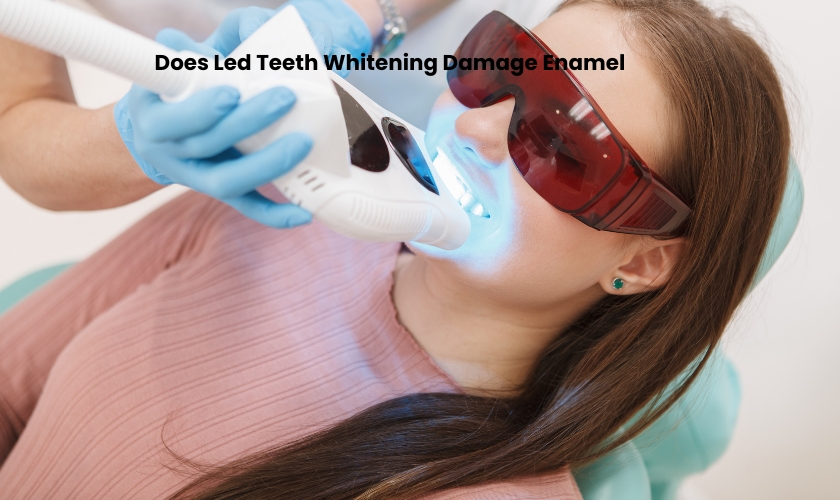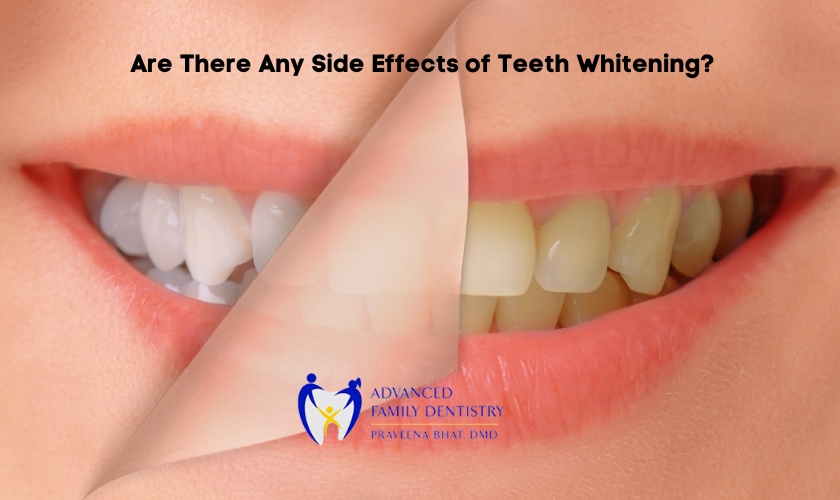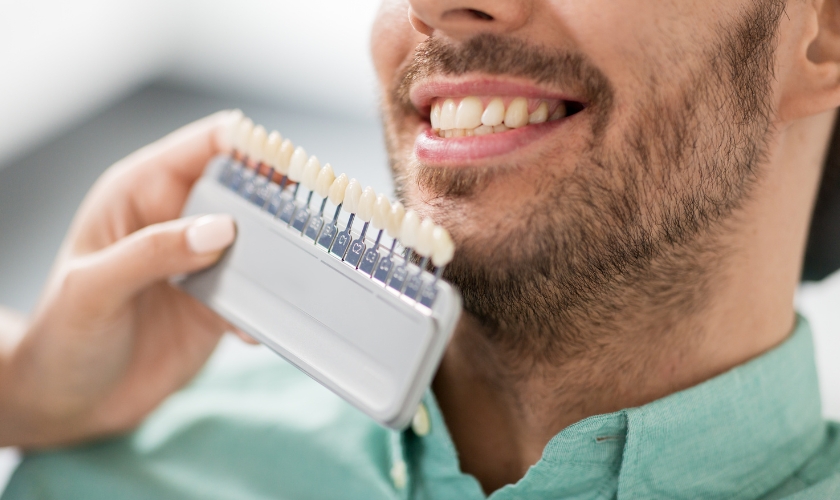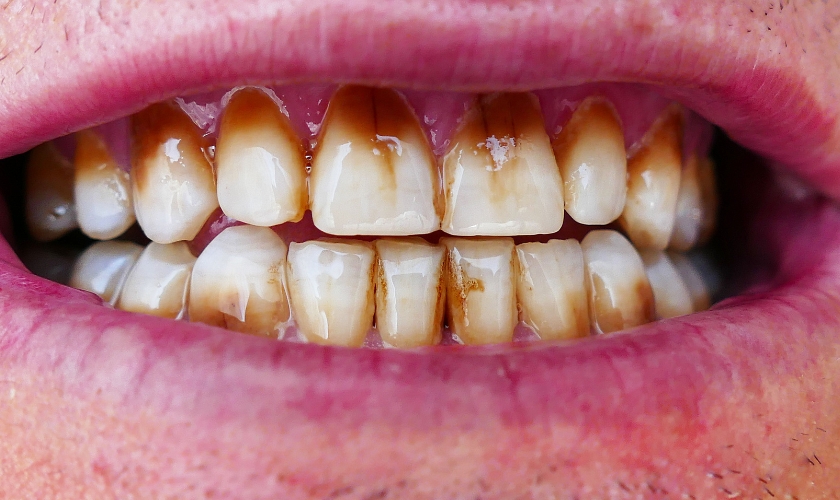Top Family, Cosmetic and Implant Center In 537 Amherst St, Nashua, NH 03063
Does Led Teeth Whitening Damage Enamel

Shining teeth are a confidence booster. But in our quest for a pearly white smile, the question often arises: Does LED teeth whitening damage enamel? This blog delves into the world of LED teeth whitening, exploring its effects on enamel and offering valuable insights to help you achieve a brighter smile without compromising your oral health.
What Is Enamel and LED Teeth Whitening?
Enamel, the hard outer layer of your teeth, acts as a shield, protecting the sensitive inner dentin and pulp. It’s naturally white but can become stained by coffee, wine, cigarettes, and certain medications. ‘
LED teeth whitening is a popular cosmetic procedure that utilizes a bleaching agent, often hydrogen peroxide or carbamide peroxide, activated by a cool LED light to whiten teeth.
Does LED Teeth Whitening Damage Enamel?
The good news: When used correctly, LED teeth whitening is generally safe for enamel. The teeth whitening agent breaks down stain molecules within the enamel, without causing permanent damage. However, some temporary side effects are possible:
- Tooth sensitivity: This is the most common side effect, occurring in up to 60% of people [1]. It’s a temporary zing or discomfort that usually subsides within a few days.
- Gum irritation: The whitening agent can irritate the gums, causing mild discomfort. Using a desensitizing toothpaste can help.
How Can Whitening Affect Enamel?
While LED teeth whitening doesn’t directly damage enamel, overuse or improper use can cause some issues:
- Enamel erosion: Excessive whitening can weaken enamel, making teeth more susceptible to staining and decay.
- Dehydration: The whitening process can temporarily dehydrate teeth, increasing sensitivity.
The effects of LED teeth whitening on enamel:
| Effects | Description |
| Enamel damage | Generally no permanent damage with proper use |
| Tooth sensitivity | Common side effect, usually temporary |
| Gum irritation | Possible side effect, using desensitizing toothpaste can help |
| Enamel erosion | Overuse or improper use can weaken enamel |
| Dehydration | Temporary dehydration during the whitening process |
Who Shouldn’t Whiten?
LED teeth whitening isn’t suitable for everyone. Consult your dentist before whitening if you have:
- Sensitive teeth or gums
- Cracked or chipped teeth
- Exposed tooth roots
- Pregnant or breastfeeding
- Children under 14
Conclusion
Achieving a brighter smile doesn’t have to come at the cost of your oral health. When used correctly, LED teeth whitening offers a safe and effective way to whiten your teeth. However, understanding its effects and potential side effects is crucial. Always consult your dentist Nashua before starting any whitening treatment. They can assess your individual needs and recommend the safest and most effective whitening option for a dazzling smile that shines with confidence.
FAQs
Led teeth whitening, when performed correctly, does not cause significant enamel damage. However, overuse or misuse of whitening products can lead to enamel erosion and increased sensitivity.
It’s best to follow the recommendations of your dentist regarding the frequency of Led whitening treatments. Overwhitening can lead to enamel damage and sensitivity.
Some common side effects of Led whitening include temporary tooth sensitivity and gum irritation. These symptoms typically subside shortly after treatment.
While at-home Led whitening kits are available, it’s important to use them cautiously and follow the instructions carefully to avoid enamel damage and other complications.
Led teeth whitening is generally safe for most individuals, but certain groups, such as pregnant or nursing women and those with untreated dental issues, should avoid whitening treatments.




